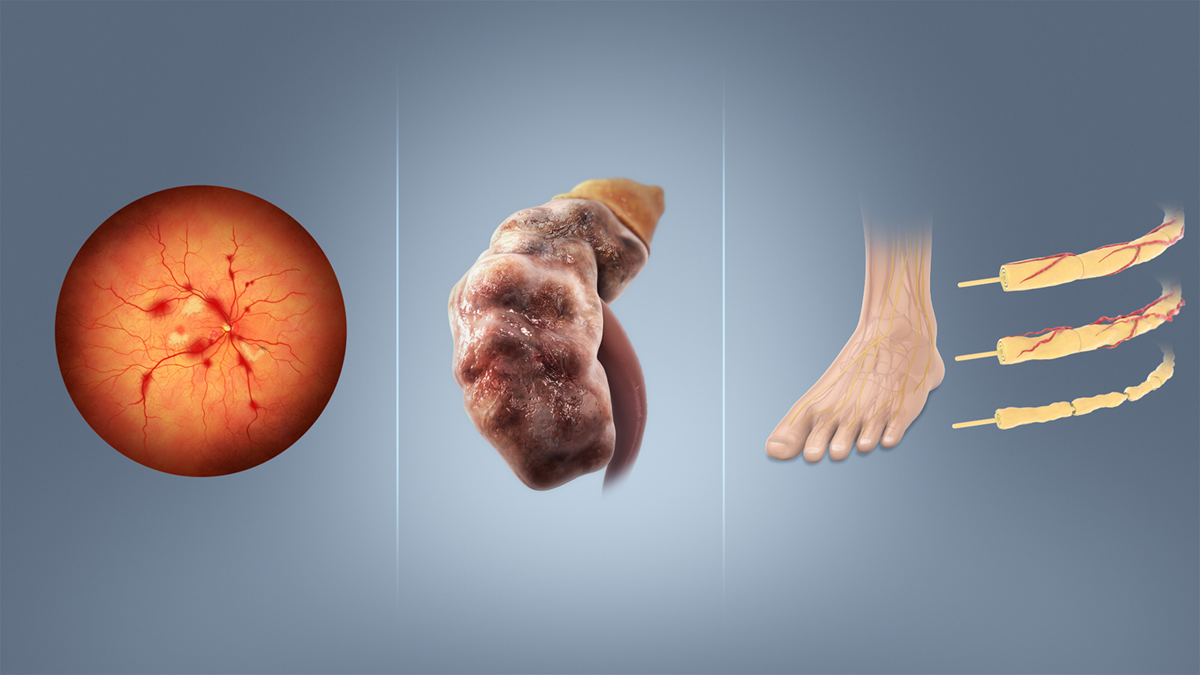Diabetes Facts
Diabetes mellitus (or just diabetes) is a medical condition characterized by high levels of blood sugar. The body of diabetes patients doesn’t produce enough insulin or doesn’t respond to insulin that the body has produced, causing the increase of glucose (sugar) in the blood. The common symptoms of this illness include increased hunger and thirst and much more frequent urination than normal.
There are three types of diabetes: type 1 is an autoimmune disorder when the body doesn’t produce insulin. Diabetes type 2 is caused by resistance to insulin, and type 3 refers to diabetes cases in pregnant women, and it’s called gestational diabetes.

Untreated diabetes may be a serious risk to your health, and the condition could even become life-threatening.
Dehydration
Badly managed diabetes is recognized by these effects: dehydration, increased thirst of the patients, and extreme production of urine. One of the major risks of untreated diabetes is dehydration, because of the high blood sugar. Serious dehydration is a severe condition that affects important organs of the body, like the heart, kidneys, and the brain. The levels of glucose might be 8 to 10 times higher than normal, causing severe dehydration of the whole body.
Additionally, there’s little glucose left to be excreted in urine, and it causes osmotic diuresis. Production of urine increases, and the body gets even more dehydrated.
Tissue Injury
Diabetes is a chronic condition affecting the blood vessels in the body and causing their changes and abnormalities. Untreated or poorly treated diabetes causes much more serious problems and much sooner than treated.
Changes of blood vessels in the eye may cause different eye problems, like retinopathy or even blindness. Diabetes may also be the cause of heart issues, leading to heart attacks, arrhythmias, or brain problems, such as stroke. Kidneys are also affected, and untreated diabetes is the cause of d stage kidney disease. This condition may result in ischemia and sometimes gangrene of the limbs, which ends in amputation of the affected limb.
Peripheral nerves could be seriously damaged, causing decreased bladder control, numbness in hands and feet, and many other disorders.
Other Illnesses
Diabetes is considered to be a risk factor for many illnesses, such as hypertension and atherosclerosis. These illnesses may even further damage already affected tissues.
Metabolic Acidosis
Metabolism of diabetes patients prefer to deal with fat than carbohydrates, causing the buildup of keto acids, which leads to a condition known as metabolic acidosis. This could complicate the illness and cause a serious case of acidosis or diabetic coma.
Depletion of Body Proteins
Untreated diabetes type 1 is causing patients’ bodies to rapidly lose weight, even if they eat abnormal amounts of food. It is a severe condition, and if it remains untreated for a couple of weeks, it could lead to body damage and death.
- With advances in the management of diabetes mellitus, evidence is emerging of an increased risk and burden of a different set of lesser-known complications of diabetes mellitus.
- As mortality from vascular diseases has declined, cancer and dementia have become leading causes of death amongst people with diabetes mellitus.
- Diabetes mellitus is associated with an increased risk of various cancers, especially gastrointestinal cancers and female-specific cancers.
- Hospitalization and mortality from various infections, including COVID-19, pneumonia, foot and kidney infections, are increased in people with diabetes mellitus.
- Cognitive and functional disability, nonalcoholic fatty liver disease, obstructive sleep apnoea and depression are also common in people with diabetes mellitus.
- As new complications of diabetes mellitus continue to emerge, the management of this disorder should be viewed holistically, and screening guidelines should consider conditions such as cancer, liver disease and depression.

















Your thoughts on this
Loading...